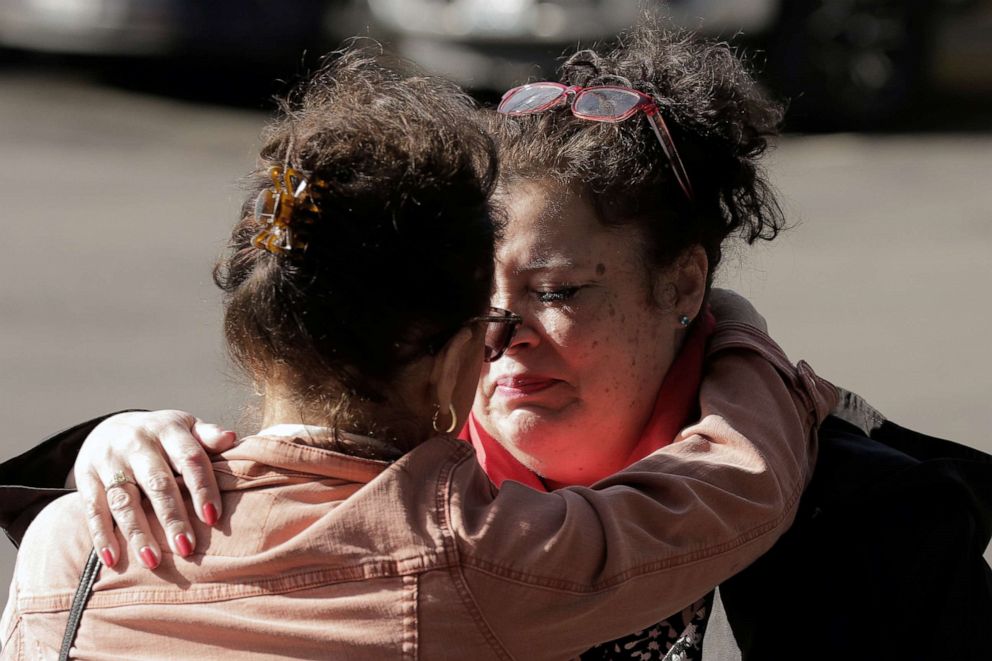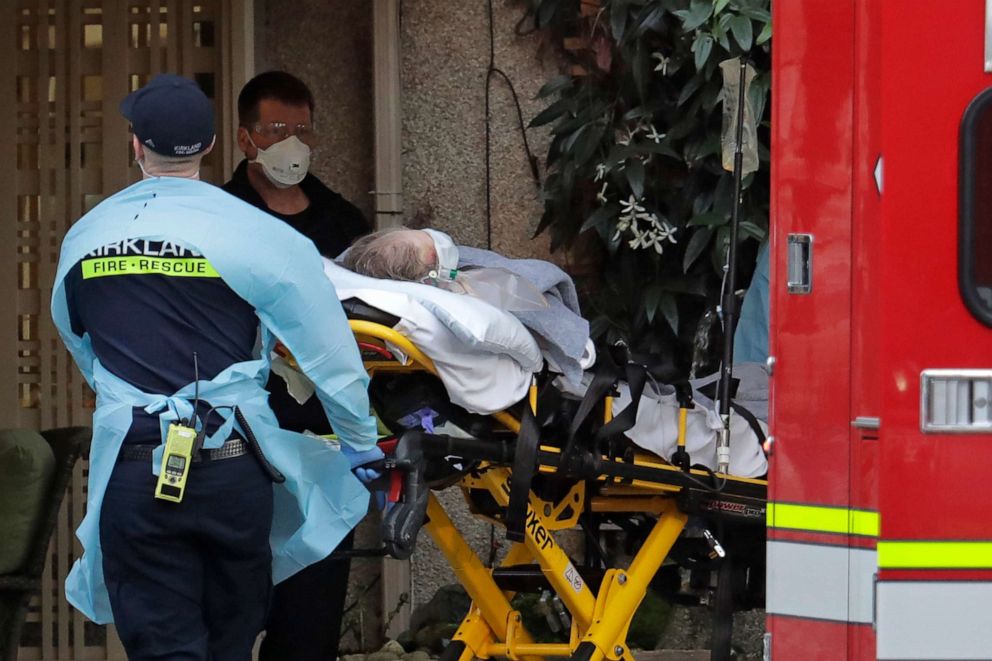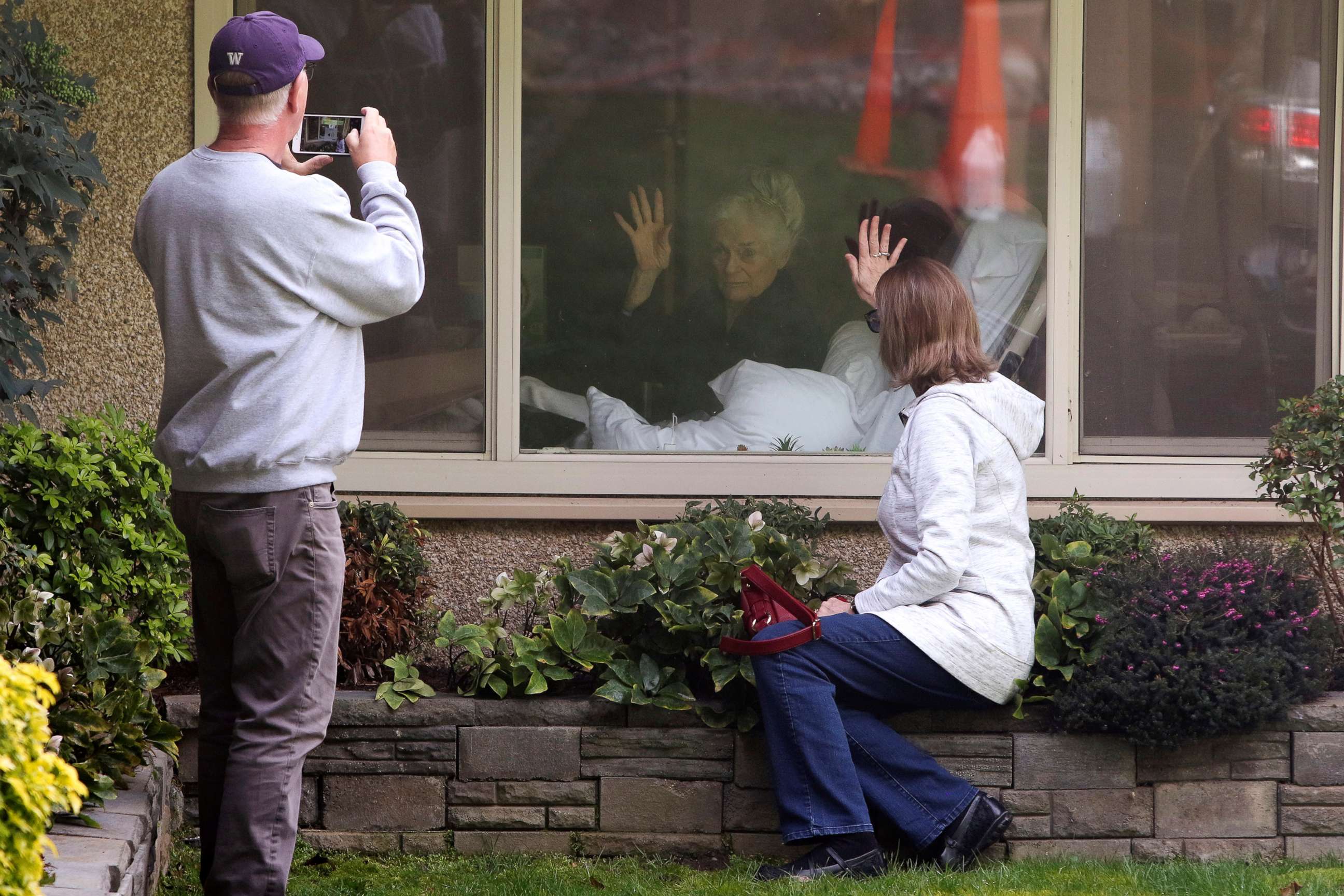'I'm scared': How coronavirus is delivering a double blow for older Americans
Older adults are the most at-risk for serious illness and financial impacts.
As the novel coronavirus sickens thousands and clobbers financial markets, some older adults -- the most at-risk group -- feel they're taking a double hit amid the pandemic as they also watch their retirement savings plunge.
Barb Winsor, 64, a lung cancer survivor from Bridgeport, Connecticut, said she'd planned a trip to London for her daughter's birthday this week, but canceled it last minute on the advice of her doctor.
"My pulmonologist said, 'Barb, under no circumstances are you to get onto a plane and travel,'" Winsor said. "He said, 'I don't care if you wipe down every surface on that plane, if even one person on that plane has it or is a carrier, you're in trouble, you're high-risk.'"
Winsor said that like many people she knows, she wasn't worried about the outbreak for weeks, but admitted on Thursday: "I'm scared now."
"I don't want to go anywhere," she said. "It is very concerning, I'm concerned about my husband getting it and bringing it back to me."
Instead of her European vacation, "I think I'm going to lock myself into my art studio and paint," said Winsor (who's the relative of an ABC News employee).
Older adults, along with those with underlying medical conditions, are at a higher risk for becoming seriously ill from COVID-19, according to the U.S. Centers for Disease Control and Prevention. For cases in China, the overall fatality rate was 2.3% from COVID-19, but it skyrocketed to 14.8% in people 80 or older, according to data released by China's Centers for Disease Control.

The disease's devastation to the elderly became especially apparent after a cluster of COVID-19 cases emerged at a nursing facility in Washington state that has become one of the first epicenters of the U.S. outbreak. Since the first COVID-19 case was reported at the Life Care Center in Kirkland, more than two dozen deaths have been attributed to the virus in just weeks.
The CDC recently issued a new warning for older adults to stock up on supplies, avoid crowds and non-essential travel, and to stay at home if there is an outbreak in your community.

People close to retirement 'at the greatest risk for big equity market shocks'
In addition to anxieties over her health, Winsor told ABC News she and her husband have felt stress over the recent volatility in financial markets.
"We have lost a substantial amount in the stock market over the last few days. I know it will come back, but does it come back faster being older?" she said. "How long does it take to come back?"
"My husband is very stressed out about it," she said. "I always had a very positive way to look at things, and I try not to worry because that doesn't help, but it's definitely a worry for both of us."
While at the moment she said she is most concerned about her health, she said she believes the financial impact from the outbreak "is going to hit us longer down the road."
Some financial planners have said they're now advising older clients to delay retirement as the markets seesaw.
"If possible, be flexible if you're thinking of retiring in the next year or two," Judith Ward, a senior financial planner at T. Rowe Price, told ABC News via email. "I was just talking to a friend who had planned to retire at the end of this year. She's keeping her options open while keeping an eye on the market."
Ward said she recommends retirees or near-retirees keep "some cash on the side" that could cover one to two years of spending. "If markets are down for an extended time period, use this cash reserve for spending needs rather than having to sell investments and incur a loss."
"Another powerful lever is spending -- and, it's what's in our control," she said, recommending that "retirees may be able to tighten the belt for a time until their portfolio rebounds."
"Small adjustments over a short time period may be more prudent and help keep retirement on track rather than impulsive, panicked selling," Ward said.
Christine Benz, the director of personal finance for Morningstar Inc., added: "People close to retirement, or in retirement, are at the greatest risk for big equity market shocks like the ones we've seen recently."
"There is a phenomenon that retirement researchers refer to as sequence-of-return risk," she added, "which is that you can get stuck with lousy returns early in your retirement."
Benz said the best think older investors can do now is "make sure that you have de-risked your portfolio, that you have allocated sufficient amounts of assets to safe havens you can pull from."
"Don't panic," she added, "but do think about your own situation, and if you haven't de-risked your portfolio even though the market is down substantially, it's still not a bad time to de-risk."

Benz said she's also advising some clients to delay their retirements.
"For people who do have the stamina to keep working, and like what they do, that's a huge financial win," she said. "It can also take some of the worry out of a difficult market environment if you are able to continue working for six months, a year, two years, however long this lasts."
Maria Bruno, head of U.S. Wealth Planning at Vanguard, told ABC News that the "magnitude of what you're actually seeing in your portfolios may be more muted than what they are seeing in the headlines."
Still, she added, the market swings may disproportionately affect older Americans because "when you are approaching retirement you are much more dependent upon your investment assets to take you through retirement."
Even if you are approaching retirement soon, you still should focus your sights as long term as possible, she added.
"For someone who is entering retirement today, it's proven for them to think about a 30-year time horizon," she said. "My point with that is they still need to be well diversified, with stocks and bonds, so stocks still play a role."
"We don't know how short or long this will be," she said. "But don't make any knee-jerk reactions."




